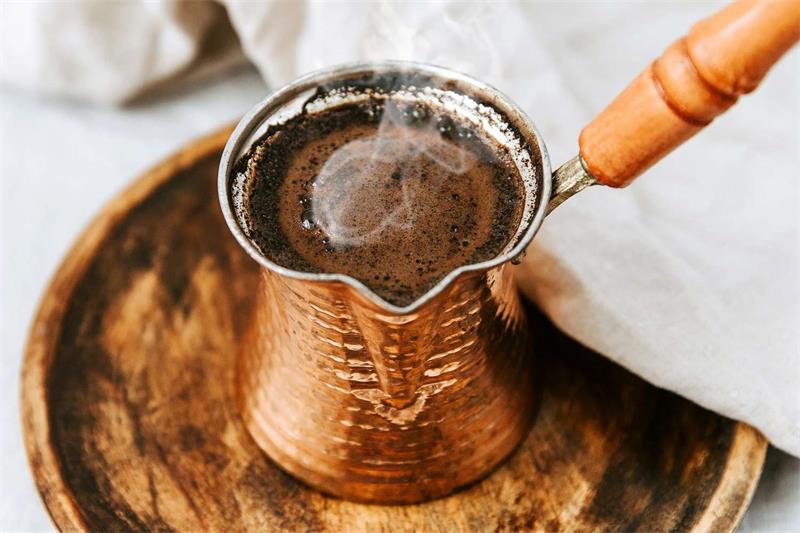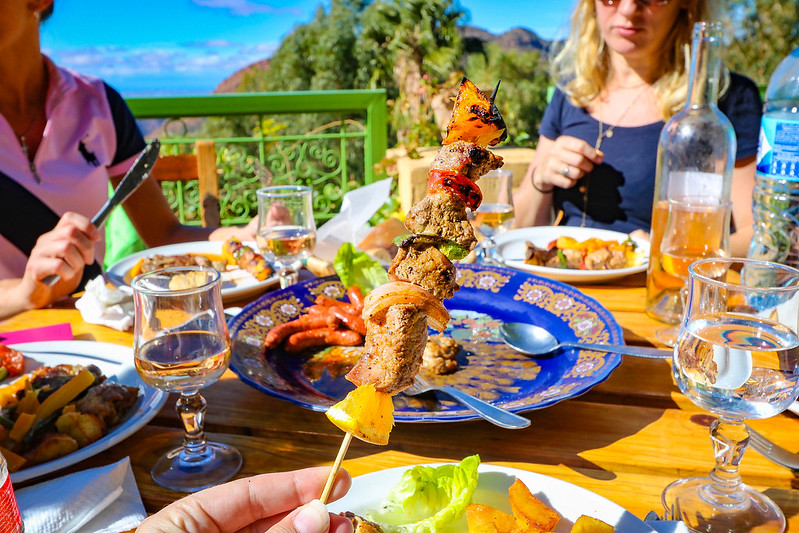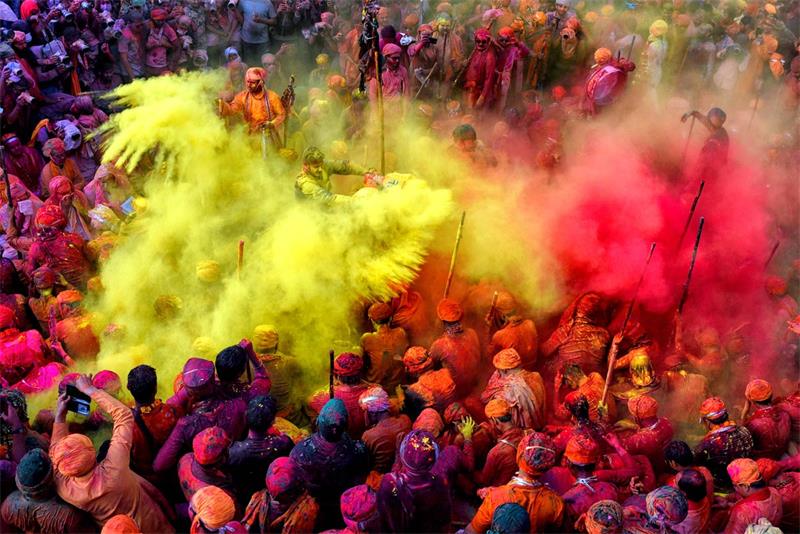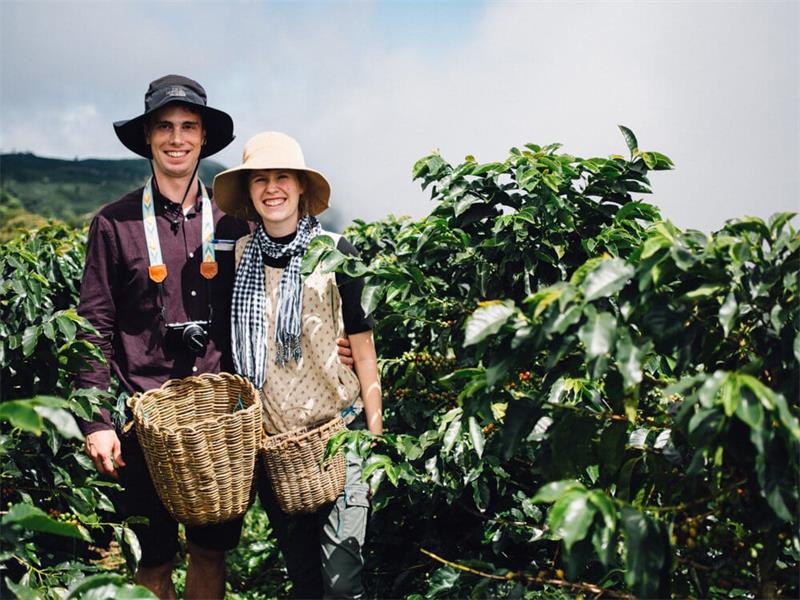Contents
The Warmth and Rich History of Turkish Coffee
Brief Overview of Turkish Coffee
Turkish coffee is a traditional and iconic beverage in Turkish culture. It is a rich, dark, and strong coffee served in small cups with sweet treats on the side.
The brewing process involves boiling ground coffee beans in a cezve, a small copper or brass pot with a long handle. The result is an unfiltered and thick brew that can be enjoyed plain or with sugar.
Despite the name, Turkish coffee is not actually from Turkey but rather has its roots in Yemen during the 15th century. It eventually spread to Istanbul during the Ottoman Empire’s reign where it quickly became an integral part of Turkish culture.
Importance of Turkish Coffee in Turkish Culture
Turkish coffee represents more than just a favorite beverage; it symbolizes social connection, hospitality and tradition deeply ingrained in Turkish culture. Drinking coffee together is a way for friends and family to gather, share stories and spend time together over something warm and comforting. The importance of hospitality also plays a significant role when it comes to serving guests or visitors at home.
Offering them another cup of steaming hot coffee is considered an act of kindness that fosters relationships between hosts and guests. Turkish coffee isn’t just about getting your caffeine fix – it’s about embracing centuries-old traditions that bring people closer together through shared experiences over hot cups of deliciously brewed coffee.
History of Turkish Coffee
Origins of coffee in Turkey
The history of Turkish coffee goes back to the 16th century when the Ottomans first discovered coffee. According to legend, the governor of Yemen, Ozdemir Pasha, introduced it to the Sultan Suleiman the Magnificent in Istanbul.
The Sultan was so impressed with its taste and aroma that he ordered his royal court to start serving it. At that time, coffee beans were mainly imported from Yemen.
The Ottomans saw an opportunity and began to cultivate their own coffee beans in the region around Istanbul. This led to a rapid expansion of the coffee industry and a growing popularity of Turkish Coffee throughout the Ottoman Empire.
Development of the brewing method and equipment
The Ottomans developed a unique way of brewing Turkish Coffee that is still used today. They ground the coffee beans into a fine powder and boiled them in a special pot called cezve over an open flame. The cezve allowed them to control the temperature and produce a thick foam on top.
Over time, they perfected this method by adding spices like cardamom and cinnamon for extra flavor. They also created specialized pots for brewing coffee called ibrik, which had a long handle for easy pouring.
Spread of Turkish Coffee throughout the Ottoman Empire
Turkish Coffee quickly became popular throughout the Ottoman Empire as it was not only delicious but also had medicinal properties. It was believed to help with digestion, boost energy levels and improve mental clarity. Coffee houses began popping up across major cities like Istanbul, Cairo, Baghdad, Damascus where people would gather to drink coffee while socializing or discussing politics or religion.
In fact, these places soon became centers for intellectual debate among scholars. Today Turkish Coffee remains an integral part of Turkish culture that is enjoyed all around world by millions of people.
Brewing ProcessDetailed Steps to Make a Perfect Cup
The process of making Turkish coffee is an art form that requires precision and patience. For the perfect cup, you will need finely ground coffee beans, cold water, and sugar (optional). Begin by filling your cezve (a small copper or brass pot with a long handle) with water and placing it on medium heat.
Add one teaspoon of coffee per serving and stir until the grounds are fully submerged. Wait for a moment before adding sugar to taste, if desired.
Then, increase the heat to high until the mixture starts to foam up, but be careful not to let it boil over. Once the foam has risen close to the top of the cezve, remove it from heat and wait for 10-15 seconds until the foam settles down.
You should repeat this step three times in total before pouring your coffee into your demitasse cups using a fine strainer. The goal is to produce a smooth and velvety texture with no lumps or debris. Traditional Brewing Methods
The traditional brewing method for Turkish coffee involves several steps that can take up to 20 minutes from start to finish. First of all, you need to make sure that your copper cezve is spotlessly clean because any residue affects the taste of your coffee significantly.
Additionally, you should use specialty Turkish coffee beans that have been roasted slow and low so as not to lose their unique flavor profile. Traditionally, Turkish people grind their own beans using heavy brass hand grinders with conical burr plates.
When serving guests in traditional settings or festive occasions such as weddings or circumcisions (in Turkey), hosts use larger pots called ibriks (or samovars) which dispense hot water into smaller cezves filled with ground coffee beans according to their preference. This ensures that the coffee remains fresh and hot throughout the gathering. Tools and Equipment Used
For brewing Turkish coffee at home, you will need a few essential tools and equipment. The most important one is the cezve, which comes in different sizes depending on the number of servings you plan to make at once.
It is usually made of copper or brass, which retain heat well and distribute it evenly. Another important tool you’ll need is a handheld grinder that can produce fine grounds.
While traditional brass grinders are widely used in Turkey, electric spice grinders or burr grinders can also be used as long as they have an adjustable mechanism to achieve the right grind size. If you want to try more authentic methods for serving your Turkish coffee, consider investing in a set of demitasse cups with matching saucers and a decorative serving tray for presenting your cups in style.
Serving and Drinking Rituals
Traditional Serving Style
Turkish coffee is not just about the taste, it’s also about the experience. The traditional serving style is an integral part of that experience.
The coffee is served in a small cup, called a fincan, which sits atop a small plate or saucer. Alongside the coffee is typically a glass of water and a small piece of Turkish delight or other sweet treat.
The serving tray itself also plays an important role in the presentation. It’s usually made of copper or brass and may be intricately decorated with designs or symbols that reflect Turkish culture and history.
Importance of Hospitality in Turkish Culture
In Turkey, hospitality is highly valued and it’s customary to offer guests something to eat and drink when they visit your home. Offering Turkish coffee to guests is a way of showing hospitality, respect, and kindness. When serving Turkish coffee to guests, it’s important to take care with how you present it.
The cups should be filled almost all the way to the top with coffee so that there are no empty spaces left as this symbolizes greediness. Additionally, remember not to pour too much at once – go slowly and refill if necessary.
Significance of Fortune Telling with Coffee Grounds
One unique aspect of the Turkish coffee drinking experience is fortune telling with the leftover grounds at the bottom of your cup. This practice has been around for centuries and involves interpreting patterns formed by the sediment as they settle at the bottom. To do this, after drinking most of your coffee you need to flip your cup upside down on its saucer so that any remaining grounds fall onto the saucer as well.
Wait for them to cool down before turning your cup back over again – this will help create clearer patterns. A skilled fortune teller can interpret these patterns to reveal your past, present, and future.
It’s important to remember that this is just for fun and not to be taken too seriously. However, it’s a great way to end a coffee drinking session with friends or family – sharing stories and interpretations of what might lay ahead.
Cultural Significance
Role of Turkish coffee in social gatherings and ceremonies
Turkish coffee has a special place in Turkish culture, where it is more than just a beverage. It is a symbol of hospitality, friendship, and tradition. Serving Turkish coffee to guests is considered an act of goodwill and respect.
In fact, it is customary to serve Turkish coffee to show appreciation for elders or esteemed guests. Moreover, the preparation and serving of Turkish coffee follows strict etiquette rules that are deeply ingrained in Turkish culture.
For instance, the serving tray that carries the cups should always be held with both hands as a sign of respect. And when offering the cup to someone else, it should be presented with the right hand while supporting the bottom with the left hand.
Influence on literature, music, and art
The significance of Turkish coffee can also be observed in various forms of art such as literature, music and paintings. Many famous poets such as Nazim Hikmet and Ahmet Hamdi Tanpinar wrote about their love for this iconic drink in their works. In addition to literature, music also owes its fair share to Turkish coffee’s cultural importance with numerous songs dedicated to this drink alone!
One famous example is Mehmet Kaytan’s “Turkish Coffee,” released in 1979 which quickly became popular throughout Turkey. even painters have depicted images featuing turkish coffe cups like Osman Hamdi Bey’s “The Cupbearer” (1890) which portrays three men drinking turkish coffe while engaged in conversation
Symbolism behind the serving tray, cups, and saucers
Every aspect of serving traditional turkish cofee comes with significant meaning – from tying up your apron strings before starting preparation all through presenting your guests with their cuppa joe! The copper color tray symbolizes the warmth and hospitality of Turkish people, while the cups themselves are also important. The cup’s material is often porcelain, glass or brass, which retains heat long enough to make an enjoyable drink without burning your tongue.
The saucer plays an important role too. It is used as a lid for the cup to keep the coffee warm and to prevent the foam from spilling over the sides.
Afterwards it serves as a receptacle for guests to place their fortune-telling grounds in order to have their future read by an experienced cup reader called “falci”. Turkish coffee is much more than just a simple beverage.
Its cultural significance extends beyond taste and aroma, with rich history and customs that have been passed down through generations. Whether served in homes or cafes across Turkey or abroad, Turkish coffee remains one of the most iconic symbols of Turkish culture and tradition.
Variations and Innovations
Regional Variations Across Turkey
Just like any other culinary tradition in the world, Turkish coffee has its own regional variations. Depending on where you go in Turkey, you can find different styles of Turkish coffee that incorporate unique ingredients and brewing methods. For example, in the southeastern region of Gaziantep, coffee is often prepared with cardamom or pistachios.
In the Black Sea region, local coffee houses serve a strong and bitter brew made with dark roasted beans. Another variation of Turkish coffee is known as “dibek kahvesi.” This style of coffee originated in the villages surrounding Mount Taurus in southern Turkey.
The beans are roasted over an open flame until they turn dark brown and then ground using a mortar and pestle. The result is a rich and flavorful brew that’s usually served with honey or Turkish delight.
Modern Twists on Traditional Recipes
While Turkish coffee has been brewed the same way for centuries, modern twists on traditional recipes have emerged in recent years. Many local cafes have started to experiment with new flavors by adding spices like cinnamon or cloves to their brews.
Others have started serving cold versions of Turkish coffee during hot summer months. One popular trend among younger generations is to add milk or cream to their traditional cup of Turkish coffee.
This creates a smooth and creamy texture that pairs well with the bold flavor profile of the drink. Some cafes even offer vegan versions made with almond or soy milk.
Health Benefits Associated With Drinking Turkish Coffee
Aside from its rich cultural significance, drinking small amounts of Turkish coffee regularly has been linked to several health benefits. Studies have shown that consuming moderate amounts (1-2 cups per day) may reduce the risk of developing Alzheimer’s disease, depression, Parkinson’s disease, type 2 diabetes and liver cancer. Turkish coffee contains high levels of antioxidants that protect the body from free radicals, which can cause cell damage and lead to disease.
In addition, Turkish coffee has been found to increase metabolism and improve cognitive function. The caffeine in the drink stimulates the brain and nervous system, improving mood, alertness, and concentration.
However, it’s important to remember that excessive caffeine consumption can lead to negative side effects such as anxiety and sleeplessness. As always, moderation is key when it comes to enjoying the health benefits of Turkish coffee.
Conclusion
Wrapping up the history and culture of Turkish coffee, it’s clear to see that this brew has not just been a staple in Turkish culture but has also influenced many other cultures around the world. The rich aroma, bold taste, and smooth texture of Turkish coffee have captured the hearts of millions, making it one of the most beloved beverages in the world.
The history and evolution of Turkish coffee are fascinating to explore. From its origins in Ethiopia to its spread across the Ottoman Empire and beyond, this beverage has had a long-lasting impact on people’s lives.
The brewing process alone is an art form that requires patience, time, and skill. We come to the cultural significance of Turkish coffee.
It’s no secret that hospitality is paramount in Turkish culture. Offering someone a cup of coffee is not just about quenching their thirst but also about showing them kindness and respect.
And let’s not forget about fortune telling with coffee grounds! This fun tradition is still popular today and adds an element of mysticism to drinking this delicious beverage.
Whether you’re enjoying a warm cup on a chilly day or sipping it over conversation with friends or loved ones, Turkish coffee brings people together in more ways than one. Its rich history and cultural significance make it much more than just a drink – it’s an experience that we can all cherish.













